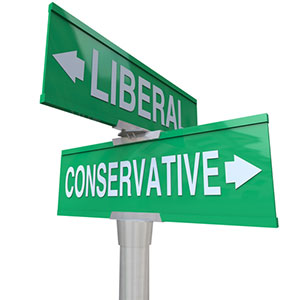
With the summer behind us and a busy fall ahead, this is perhaps a good time to reflect on the health of Canada's labour movement. That is, the health of labour unions, whose political influence -- and engagement of members -- is in decline. Between 1997 and 2011 Canada's unionized workforce declined to 31.2 per cent from 33.8 per cent of the national total. The sharpest provincial decline was recorded in B.C.: a six per cent drop over the same period.
This coincides with the consistent reelection of anti-union governments, and unions' increasing inability to influence public policy. Anecdotally, there has also been a decline in the number of union members wanting to be actively involved -- something to which I, as a union officer, probably shouldn't admit.
However, I think it's important to ask whether member disengagement and its causes aren't also a part of the problem for unions in Canada.
Signs of Conservatism
To be sure, there are numerous barriers to the after-hours commitment union activism requires.
For some it might be the need to rush home after work to take care of children or to work a second job to make ends meet. For others, it might be a false sense of luxury bought on cheap credit or the lack of perceived need to be involved in one's union.
Nevertheless -- and even though it may be controversial to point out -- member disengagement and the subsequent decline of union's political influence may have something to do with factors internal to unions.
Over my years as a union activist I've occasionally heard complaints the union movement is being held back by its own conservatism.
To some, the very notion of union conservatism will be counter-intuitive, what with unions' conventional associations with May Day, hammers and sickles, dialectical materialism, and all that.
But conservatism is more than just a socioeconomic ideology and can exist in all sorts of political organizations, both left and right, in many forms.
Mistrust of outsiders, resistance to new ideas, suppression of critical discourse and the entrenchment of the old ways of doing things despite evidence they don't work are all forms of conservatism, and have been detrimental to the labour movement.
There is help
There is hope for even the most conservative union, providing it takes the first step in acknowledging its affliction.
This is, of course, no easy task for an organization used to thinking of itself as 'left' and 'progressive' -- even if it is left and progressive in some narrow sense. There are nevertheless some clear indicators that a union has failed to move forward.
To help union members assess the conservatism of their organization, I've developed the following Union Conservatism Survey.
Each question is rated on a scale from one to five: one point means "strongly disagree/does not apply;" three points means "not sure/somewhat agree/somewhat applies;" five points means "strongly agree/strongly applies."
Add them up and divide by 75. The higher the percentage, the more conservative your union. A high score -- say, 60 per cent or higher -- means your union has some clear conservative tendencies. If so, it is hoped the survey will guide you in a more progressive direction.
- At major meetings, controversial items are put far down on the agenda so as not to be dealt with.
- In my union, proposals for technological change (for example, putting event registration online) need to be presented timidly, as proposals to investigate or report back in a year.
- To my knowledge, my union hasn't made any public statements challenging the conventional wisdom of resource extraction, capitalism, car-based transit, or the like.
- If a member proposes improvements to our internal election or meeting procedures, they are asked to stop insulting the traditions of our union.
- My union decided not to endorse the $10-a-Day Child Care campaign because many thought we should only deal with matters of our collective agreement.
- In our union we celebrate how many generations a family has been involved – although we rarely celebrate new activists who have no previous union history.
- My union won't endorse the Sensible BC referendum campaign because we don't want to be seen as too radical.
- In my union, head office appointments are only given to members closely connected with the inner circle of our strongest political faction.
- Although we silently support government whistle-blowers, our union hasn't made any public declarations of support for obvious reasons.
- If our union makes a statement against oil and gas pipeline expansion, it is invariably preceded by a series of caveats: we can't support the pipeline unless it uses union labour, has been subject to an environmental assessment, is agreed to by First Nations, etc.
- Our union has a blog but won't allow public comments in case they get out of control.
- Our union leaders don't have term limits because nobody would want to do this job, anyway.
- We haven't supported anti-war causes for fear of offending our members.
- My union's website had a campy HTML design years ahead of time, and its events page hasn't been updated in just as many years.
- If activists in my union read this survey, they'd probably call for the excommunication of the person who wrote it.
![]()
Read more: Labour + Industry














Tyee Commenting Guidelines
Comments that violate guidelines risk being deleted, and violations may result in a temporary or permanent user ban. Maintain the spirit of good conversation to stay in the discussion.
*Please note The Tyee is not a forum for spreading misinformation about COVID-19, denying its existence or minimizing its risk to public health.
Do:
Do not: